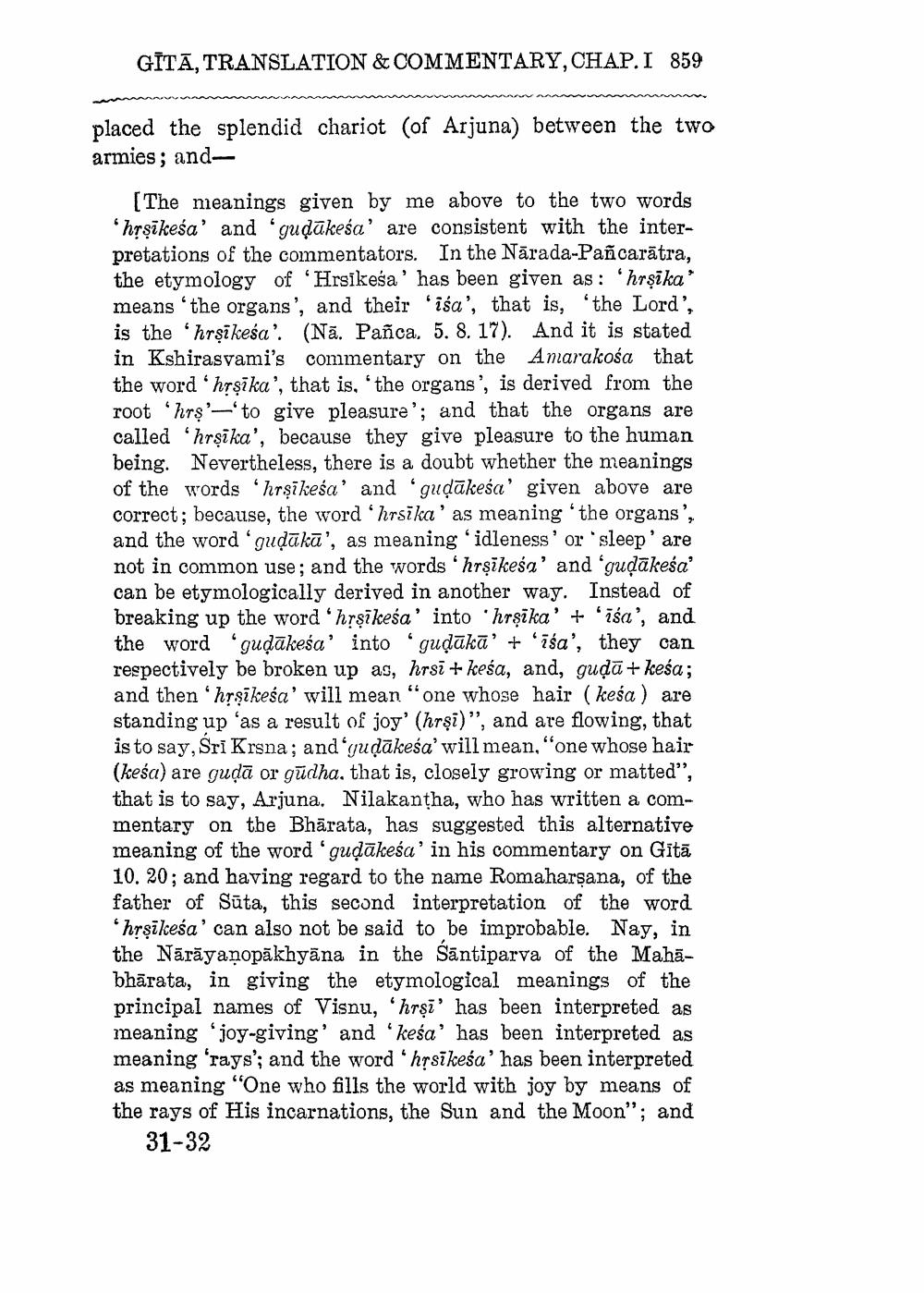________________
GĪTĀ, TRANSLATION & COMMENTARY,CHAP. I 859
w
mv Anam
w
placed the splendid chariot (of Arjuna) between the two armies; and
[The meanings given by me above to the two words 'hrsikeśa' and 'gudākeśa' are consistent with the interpretations of the commentators. In the Nārada-Pañcarätra, the etymology of 'Hrsikeśa' has been given as: 'hrşika" means the organs, and their 'iśa', that is, 'the Lord'. is the 'hrşikeśa'. (Nā. Pañca, 5. 8. 17). And it is stated in Kshirasyami's commentary on the Amarakośa that the word 'hrşika', that is, 'the organs', is derived from the root 'hrş'-'to give pleasure'; and that the organs are called "hrşika', because they give pleasure to the human being. Nevertheless, there is a doubt whether the meanings of the words 'hrşikeśa' and 'gudākeśa' given above are correct; because, the word 'hrsika' as meaning 'the organs', and the word 'gudākā', as meaning 'idleness' or 'sleep' are not in common use; and the words 'hrşikeśa' and 'gudākeśa' can be etymologically derived in another way. Instead of breaking up the word 'hrșikeśa' into 'hrşīka' + 'īša', and the word 'guďākeśa' into 'guļākā' + 'iśa', they can respectively be broken up as, hrsi + keśa, and, guđã+ keśa; and then 'hrşīkeśa' will mean "one whose hair (keśa) are standing up 'as a result of joy' (hrşi)”, and are flowing, that is to say, Sri Krsna; and quďākeśa'will mean,"one whose hair (keśa) are gudā or gūdha, that is, closely growing or matted”, that is to say, Arjuna. Nilakantha, who has written a commentary on the Bhārata, has suggested this alternative meaning of the word 'gudākeśa' in his commentary on Gītā, 10. 20; and having regard to the name Romaharşana, of the father of Sūta, this second interpretation of the word
hrşikeśa' can also not be said to be improbable. Nay, in the Nārāyaṇopākhyāna in the sāntiparva of the Mahabhārata, in giving the etymological meanings of the principal names of Visnu, 'hrşi' has been interpreted as meaning 'joy-giving' and 'keśa' has been interpreted as meaning 'rays'; and the word 'hộsikeśa' has been interpreted as meaning "One who fills the world with joy by means of the rays of His incarnations, the Sun and the Moon"; and
31-32




